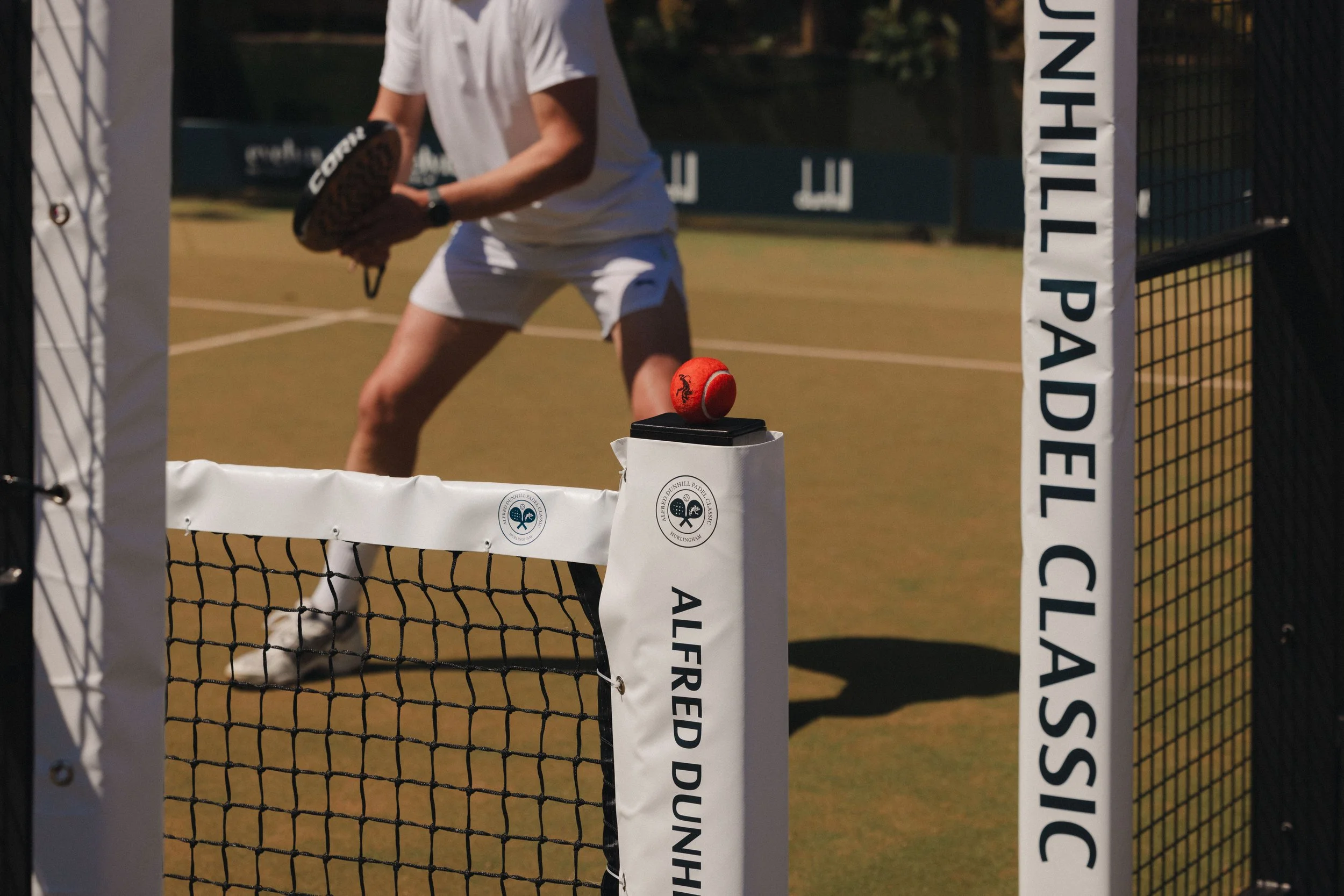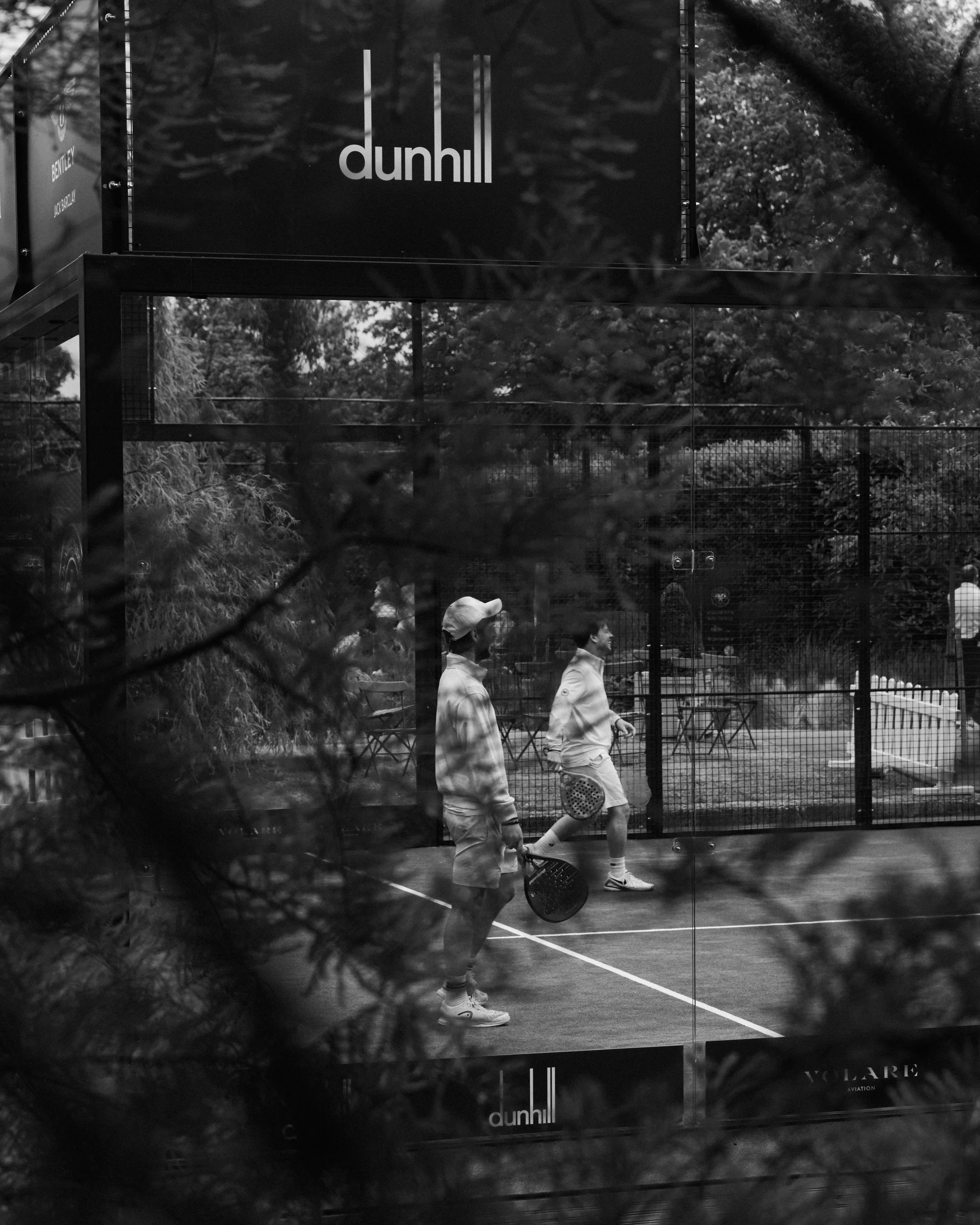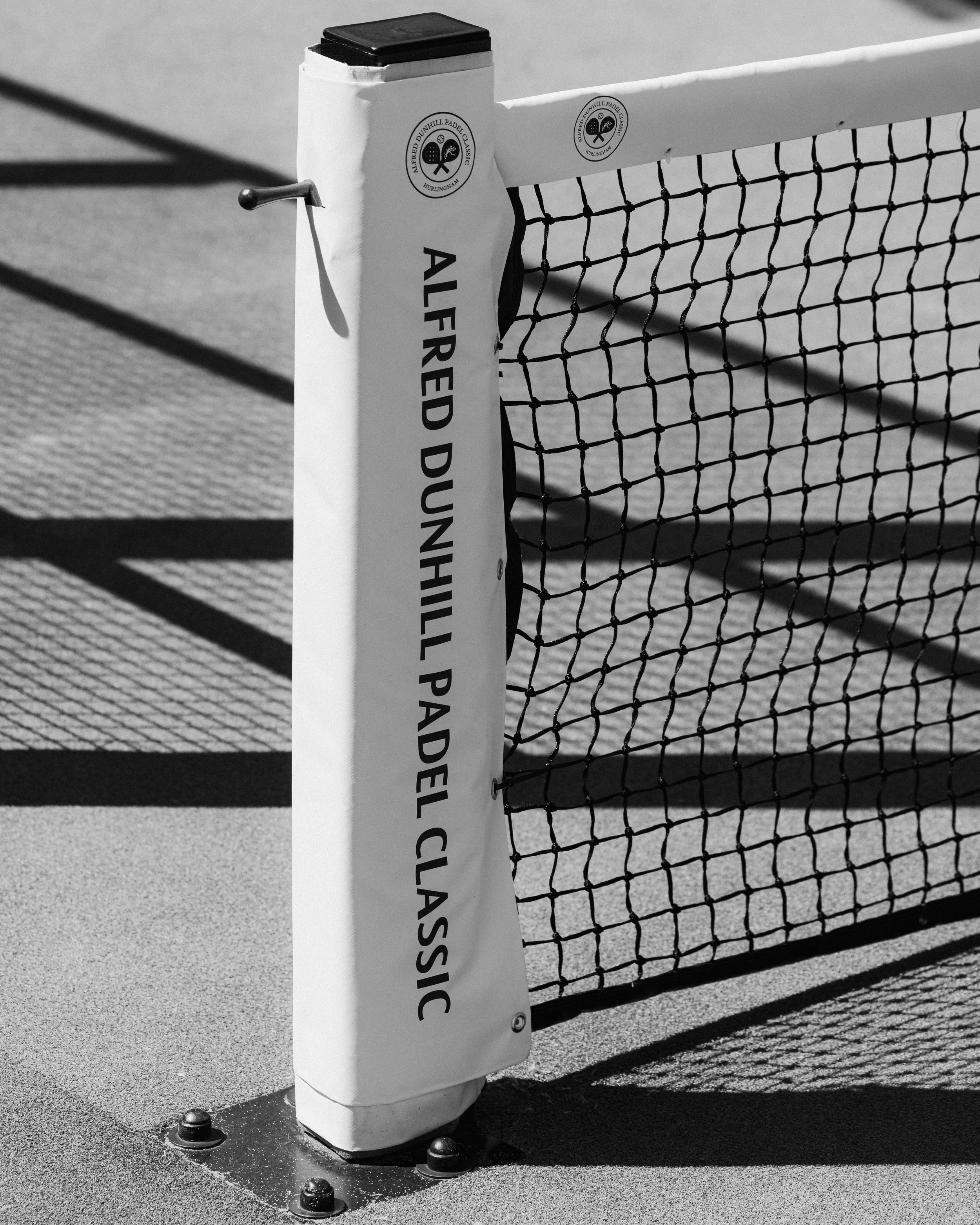
At one of London’s most exclusive clubs, padel takes center stage in support of a global movement for good.
WORDS
Philip Pereira
PHOTOGRAPHY
Nico Wills & Tim Edwards
In the heart of London, on a 42-acre oasis on the bank of the River Thames, amongst regal peacocks and perfectly manicured gardens, padel’s future is coming to life in the most quintessentially British way. The scene is whimsical: a group of socialites and influencers admire a royal-blue Bentley, bubbly mimosas in hand; elegantly dressed waitstaff serve grilled prawns, laid over a bed of fresh herbs by world-class chefs; celebrities and financiers discuss their summer plans in St. Tropez.
Credit: Nico Wills
Credit: Nico Wills
This is the second annual Alfred Dunhill Padel Classic, held at the prestigious Hurlingham Club. Founded in 1869, this private members’ club is best known as the spiritual home of British polo, even publishing the rules in 1873—the same ones still used today. Here, a Georgian-style clubhouse presides over stately gardens, complete with an orangery and a formal rose garden. Crushed-stone pathways wind from one end of the property to the other, and if you peek over a hedge, you might spot a neoclassical statue basking in the midday sunlight. You may not expect this place or crowd to be very welcoming of a game often associated with New York financiers, Miami club owners and Formula 1 drivers—but there’s much more going on here than meets the eye.

“At its best, sport doesn’t just entertain—it transforms. It can be a platform for good and a tool for change to serve something greater.”
The Dunhill Padel Classic is quickly becoming an essential fixture in the already loaded British summer sporting calendar. Alongside the Epsom Derby, Royal Ascot, Henley Regatta, Windsor Polo and, of course, Wimbledon, this event is proving itself worthy of standing side-by-side with these giants of British sport, complete with a stunning venue centered around a sporting spectacle. And what a spectacle is it, featuring the UK’s first floating padel court.
But there’s one thing that sets this event apart from the others. The focus isn’t the celebrities or influencers or luxury cars. Even the exquisite hors d’oeuvres are taking a backseat to the main attraction: charity.
Credit: Nico Wills
Credit: Nico Wills
Padel-with-a-purpose is the ethos at the core of the Alfred Dunhill Padel Classic. This two-day event raises funds for Laureus Sport for Good, a charitable organization founded under the Patronage of Nelson Mandela that uses sport as a tool to help disadvantaged children around the world.
Credit: Nico Wills

Credit: Nico Wills
Their accomplishments are more than impressive. In 2024 alone, Laureus Sport for Good supported more than 330 programs in almost 40 countries. Of the more than 258,000 participants, over 50% were women; more than 8,500 coaches were trained, and 5,500 mental health initiatives were funded and delivered; 35,000 young people took part in employability-focused programs, and over 15,000 gained employability or vocational skills. Over the last 20 years, the organization has raised more than $150 million for sports development, and together with its partners, it has helped change the lives of almost 6 million children and young people worldwide.
Credit: Tim Edwards
Credit: Tim Edwards
As padel expands across the globe, it’s becoming an exclusive sport adored by financiers and executives, slightly out of reach for the common man and woman. At the Hurlingham Club, exclusivity is part of the DNA, but through events like this, that exclusivity is being reframed. Instead of closing doors, it’s opening them—using access, spectacle and sport to support initiatives that champion inclusion, equity and opportunity. In this way, the Alfred Dunhill Padel Classic becomes something rare: a beacon of inclusivity in the most unlikely places.
At its best, sport doesn’t just entertain—it transforms. And while padel may still be carving out its place on the global stage, events like the Alfred Dunhill Padel Classic remind us what that place could be. It can be a playground for the elite, yes—but also a platform for good. A tool for change. A symbol of how even the most exclusive spaces can open up, if only for a moment, to serve something greater. ✸
ABOUT THE AUTHOR
Philip Pereira
Philip Pereira has had a distinguished 30-year career in magazine publishing in the recreational boating sector. He first played Padel in 1990 at the birthplace of Padel in Europe, Marbella. He has played competitive squash in the UK for over 47 years and now acts as an ambassador and consultant for: The Padel World Summit, Floating Padel Oy, Padel Solta and LED projects.










